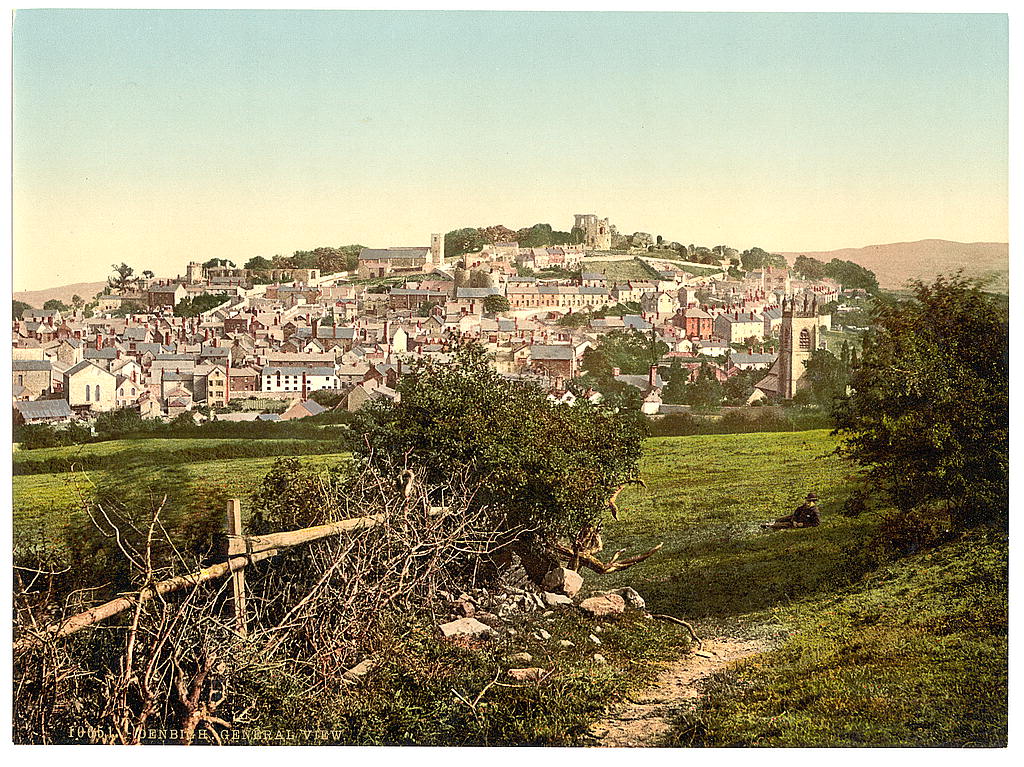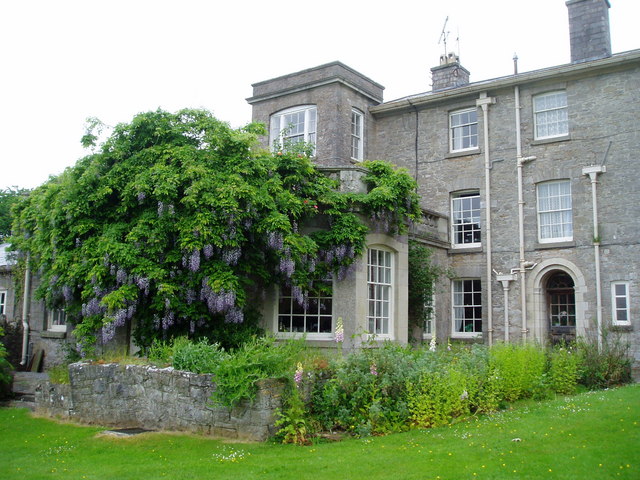|
Thomas Baddy
Thomas Baddy (died 1729) was an Independent minister and author. Early life and education Little is known about his family and early life, but he had a brother, Owen. He was described as being from Wrexham in 1690. He studied in Rathmell, Yorkshire at Frankland's Academy beginning in 1689, and then at the Common Fund Board until 1693. Career He was a minister in Denbigh of the Independent congregation from 1693 until his death. During that time, he also filled in as needed at the Bala and Wrexham churches. Baddy was an author, translator, and wrote hymns, considered "the earliest known attempts at hymnody among Welsh Dissenters." A series was published in 1703 and ''Caniad Salomon'' was published in 1725. He translated ''Christian's Passover'' (''Pasc y Cristion'') and ''A Work by T. Wadswoth'' (1713) into Welsh. Personal life Baddy, who was well-off financially, married Anne Salusbury of Galltfaenan, Denbighshire Denbighshire ( ; cy, Sir Ddinbych; ) is a county in the nor ... [...More Info...] [...Related Items...] OR: [Wikipedia] [Google] [Baidu] |
Rathmell
Rathmell is a village and civil parish in the Craven district of North Yorkshire, England. The population of the civil parish in the 2011 census was 305. It is close to the River Ribble and about three miles south of Settle. Other towns and villages nearby include Wigglesworth, Tosside, Giggleswick and Long Preston. Origins The name Rathmell comes from Old Norse 'red' + 'sandbank'. Indeed, the area has a long history of Norse settlement. Rathmell was formerly a township in the parish of Gigggleswick, in 1866 Rathmell became a civil parish in its own right. On 1 April 1938 432 acres was transferred from Gisburn Forest. Dissenting academy Rathmell is the birthplace of Richard Frankland (1630–1698),Stuart HandleyRichard Frankland (1630–1698) ''Oxford Dictionary of National Biography'', Oxford University Press, 2004. the nonconformist divine. He was ordained by presbyters under the Cromwellian regime, but was ejected from his ministry at the Restoration. He retired ... [...More Info...] [...Related Items...] OR: [Wikipedia] [Google] [Baidu] |
Yorkshire
Yorkshire ( ; abbreviated Yorks), formally known as the County of York, is a Historic counties of England, historic county in northern England and by far the largest in the United Kingdom. Because of its large area in comparison with other English counties, functions have been undertaken over time by its subdivisions, which have also been subject to History of local government in Yorkshire, periodic reform. Throughout these changes, Yorkshire has continued to be recognised as a geographic territory and cultural region. The name is familiar and well understood across the United Kingdom and is in common use in the media and the Yorkshire Regiment, military, and also features in the titles of current areas of civil administration such as North Yorkshire, South Yorkshire, West Yorkshire and the East Riding of Yorkshire. Within the borders of the historic county of Yorkshire are large stretches of countryside, including the Yorkshire Dales, North York Moors and Peak District nationa ... [...More Info...] [...Related Items...] OR: [Wikipedia] [Google] [Baidu] |
Richard Frankland (tutor)
Richard Frankland (1630–1698) was an English nonconformist, notable for founding the Rathmell Academy, a dissenting academy in the north of England. Biography Richard Frankland, son of John Frankland, was born on 1 November 1630, at Rathmell, a hamlet in the parish of Giggleswick, Yorkshire. The Franklands of Thirkleby, Yorkshire (baronets from 1660), with whom John Frankland was connected, were originally from Giggleswick. Frankland was educated (1640–1648) at Giggleswick grammar school, and was admitted on 18 May 1648 as minor pensionary at Christ's College, Cambridge. The tone of his college, under the mastership of Samuel Bolton, D.D., was that of a cultured puritanism. Frankland, like Oliver Heywood, received lasting impressions from the preaching of Samuel Hammond, lecturer (till 1652) at St. Giles'. He was a hard student, and took his degrees with distinction (B.A. 1651, M.A. 1655). Northumberland and Durham After graduating, Frankland preached for short periods at H ... [...More Info...] [...Related Items...] OR: [Wikipedia] [Google] [Baidu] |
Dissenting Academies
The dissenting academies were schools, colleges and seminaries (often institutions with aspects of all three) run by English Dissenters, that is, those who Nonconformist (Protestantism), did not conform to the Church of England. They formed a significant part of education in England, England's educational systems from the mid-seventeenth to nineteenth centuries. Background After the Uniformity Act 1662, for about two centuries, it was difficult for any but practising members of the Church of England to gain degrees from the old English universities, at Cambridge and Oxford. The University of Oxford, in particular, required – until the Oxford University Act 1854 – a religious test on admission that was comparable to that for joining the Church. The situation at the University of Cambridge was that a statutory test was required to take a bachelor's degree. English Dissenters in this context were Nonconformist (Protestantism), Nonconformist Protestants who could not in good cons ... [...More Info...] [...Related Items...] OR: [Wikipedia] [Google] [Baidu] |
Denbigh
Denbigh (; cy, Dinbych; ) is a market town and a community in Denbighshire, Wales. Formerly, the county town, the Welsh name translates to "Little Fortress"; a reference to its historic castle. Denbigh lies near the Clwydian Hills. History Denbigh Castle, together with its town walls, was built in 1282 by order of King Edward I. The Burgess Gate, whose twin towers adorn the symbol on Denbigh's civic seal, was once the main entrance into the town. The first borough charter was granted to Denbigh in 1290, when the town was still contained within the old town walls. It was the centre of the Marcher Lordship of Denbigh. The town was involved in the revolt of Madog ap Llywelyn in 1294–1295; the castle was captured in the autumn, and on 11 November 1294 a relieving force was defeated by the Welsh rebels. The town was recaptured by Edward I in December. Denbigh was also burnt in 1400 during the revolt of Owain Glyndŵr. During the Wars of the Roses (1455-1487), the town was ... [...More Info...] [...Related Items...] OR: [Wikipedia] [Google] [Baidu] |
Hymnody
Robert Gerhard's Hymnody is a contemporary classical work from 1963, which was an assignment from BBC #REDIRECT BBC #REDIRECT BBC Here i going to introduce about the best teacher of my life b BALAJI sir. He is the precious gift that I got befor 2yrs . How has helped and thought all the concept and made my success in the 10th board exam. ... .... This piece was written during February and March of that year. Composer notes A note from the composer: First citation comes from Psalm 22, vers 12: "... Cashan's strong bulls messed me up;" the second one from Psalm 88, vers 12: "will your wonders be known in the dark?" Orchestration and instruments This work was written in nine strongly contrasted sections, played without a break. Orchestration: flute, oboe, clarinet, horn, trumpet, trombone, tuba, percussion, vibraphone, Korean temple block, 3 Chinese toms, clave, timp, xylorimb, bonbo, tamb, xylophone. Premiere and criticism Hymnody, a BBC assignment, was written in Feb ... [...More Info...] [...Related Items...] OR: [Wikipedia] [Google] [Baidu] |
Galltfaenan Hall
Gallfaenan Hall, also known as Alltvaynan, is a Grade II listed building near to Trefnant and Henllan in Denbighshire, Wales. The site was established by the 16th century, when a branch of the Salusbury family bought it from the Ravenscroft family and made it their seat. The direct line of the Salusbury branch ended in 1791 and the estate passed to a cousin's son, Colonel John Lloyd, on condition that he adopted the Salusbury arms and name. Following his marriage in 1810, the building was probably much altered, including by the construction of a Regency-style entrance that still exists. The house passed to the cousin's daughter, Anna Maria Salusbury, on his death. She married Townshend Mainwaring of Marchwiel Hall, who at various times was a Member of Parliament, Justice of the Peace and High Sheriff of Denbighshire. It was again remodelled in the 1860s, using designs by the Denbigh Denbigh (; cy, Dinbych; ) is a market town and a community in Denbighshire, Wales. Forme ... [...More Info...] [...Related Items...] OR: [Wikipedia] [Google] [Baidu] |
Denbighshire
Denbighshire ( ; cy, Sir Ddinbych; ) is a county in the north-east of Wales. Its borders differ from the historic county of the same name. This part of Wales contains the country's oldest known evidence of habitation – Pontnewydd (Bontnewydd-Llanelwy) Palaeolithic site has Neanderthal remains of some 225,000 years ago. Castles include Denbigh, Rhuddlan, Rhyl, Prestatyn, Trefnant, Llangollen and Ruthin, Castell Dinas Bran, Bodelwyddan and St Asaph Cathedral. Denbighshire is bounded by coastline to the north and hills to the east, south and west. The River Clwyd follows a broad valley with little industry: crops appear in the Vale of Clwyd and cattle and sheep in the uplands. The coast attracts summer visitors; hikers frequent the Clwydian Range, part of the Clwydian Range and Dee Valley Area of Outstanding Natural Beauty. Llangollen International Musical Eisteddfod takes place each July. Formation The main area was formed on 1 April 1996 under the Local Government (Wale ... [...More Info...] [...Related Items...] OR: [Wikipedia] [Google] [Baidu] |
Welsh Religious Leaders
Welsh may refer to: Related to Wales * Welsh, referring or related to Wales * Welsh language, a Brittonic Celtic language spoken in Wales * Welsh people People * Welsh (surname) * Sometimes used as a synonym for the ancient Britons (Celtic people) Animals * Welsh (pig) Places * Welsh Basin, a basin during the Cambrian, Ordovician and Silurian geological periods * Welsh, Louisiana, a town in the United States * Welsh, Ohio, an unincorporated community in the United States See also * Welch (other) * * * Cambrian + Cymru Wales ( cy, Cymru ) is a country that is part of the United Kingdom. It is bordered by England to the east, the Irish Sea to the north and west, the Celtic Sea to the south west and the Bristol Channel to the south. It had a population in 202 ... {{Disambiguation Language and nationality disambiguation pages ... [...More Info...] [...Related Items...] OR: [Wikipedia] [Google] [Baidu] |
Welsh Writers
Welsh may refer to: Related to Wales * Welsh, referring or related to Wales * Welsh language, a Brittonic Celtic language spoken in Wales * Welsh people People * Welsh (surname) * Sometimes used as a synonym for the ancient Britons (Celtic people) Animals * Welsh (pig) Places * Welsh Basin, a basin during the Cambrian, Ordovician and Silurian geological periods * Welsh, Louisiana, a town in the United States * Welsh, Ohio, an unincorporated community in the United States See also * Welch (other) * * * Cambrian + Cymru Wales ( cy, Cymru ) is a country that is part of the United Kingdom. It is bordered by England to the east, the Irish Sea to the north and west, the Celtic Sea to the south west and the Bristol Channel to the south. It had a population in 202 ... {{Disambiguation Language and nationality disambiguation pages ... [...More Info...] [...Related Items...] OR: [Wikipedia] [Google] [Baidu] |



